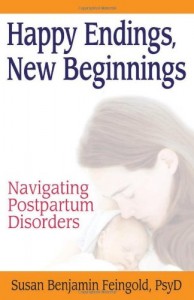Postpartum Depression And Anxiety Disorders: An Illness That Robs New Mothers Of Joy
While childbirth is normal, it’s a life-changing event fraught with cascading effects that require enormous adjustment for the woman, her spouse and the couple together. Even in the best of circumstances, it’s accompanied by a great deal of stress and parents are often unprepared for the full impact.
It’s no surprise that when schedules turn upside down and the infant seems to be the one controlling the grown-ups, new mothers often feel a loss of control.
The more parents know about the postpartum period, the more control they’ll have over the inevitable changes it brings—and over their lives in general.
However for thousands of women worldwide, the struggles go deeper than adjusting to a new member of the family. According to the World Health Organization, “an estimated 73 million adult women suffer a major depressive episode each year. Mental disorders following childbirth, including postpartum depression, are estimated to affect about 13% of women within one year of delivery.”
Postpartum mood and anxiety disorders, also known as postpartum depression, have been identified by Postpartum Support International as the most common complications of childbirth. Yet, this disabling mental health syndrome is one that is often not recognized or discussed. Despite the lack of awareness, this illness is largely responsible for robbing the new mother of joy and affecting the mother-baby relationship, as well as family bonding.
The silence surrounding mood and anxiety disorders has been reinforced by several fallacies. Societal myths that idealize motherhood have perpetuated the belief that maternity, being natural, is an easy transition.

One particularly harmful impression is that during pregnancy and the postpartum year, women enjoy optimum mental health, as though they are encased in an emotional bubble. For many years, the general public and the medical community have accepted this idea, which has reinforced the notion that you are the only one who feels differently.
In reality, women are more at risk for depression during their childbearing years than at any other time. Authorities estimate that hundreds of thousands of women in the United States and thousands more worldwide suffer from some form of depression in their lives, with the onset peaking between twenty-five and forty-four years of age—the childbearing years.
Slowly, this falsehood of protected mental health is becoming obsolete and a growing number of healthcare providers are educating, screening and identifying women who are at risk and referring them for evaluation and treatment.
The good news is with early identification and treatment of postpartum depression and anxiety disorders, women not only get well relatively quickly, but they often report affirmative outcomes, such as personal growth and positive changes. This benefits the new mother, her relationship with her baby, and the whole family.
In “Happy Endings, New Beginnings: Navigating Postpartum Disorders,” the reader learns about the prevalence and symptoms of the illness, 4 principles to navigate the journey to wellness, as well as the positive outcomes and personal growth and transformational experiences that can follow.
Excerpt from Happy Endings, New Beginnings: Navigating Postpartum Disorders. I provide a fuller explanation of the illness as well as provide fascinating true stories of women’s postpartum experience and the personal growth that followed.
Image Shutterstock/Alex Skopje

